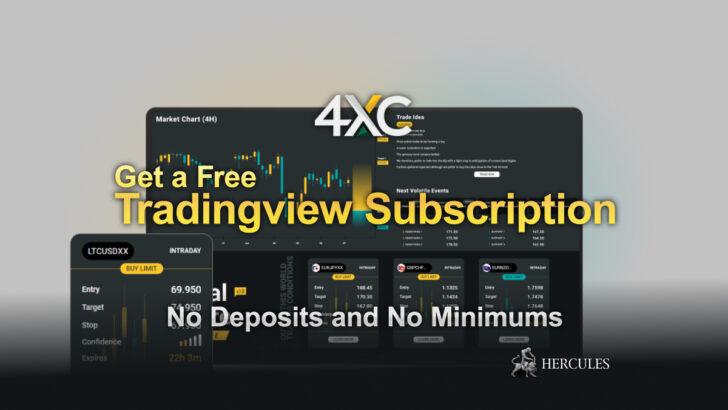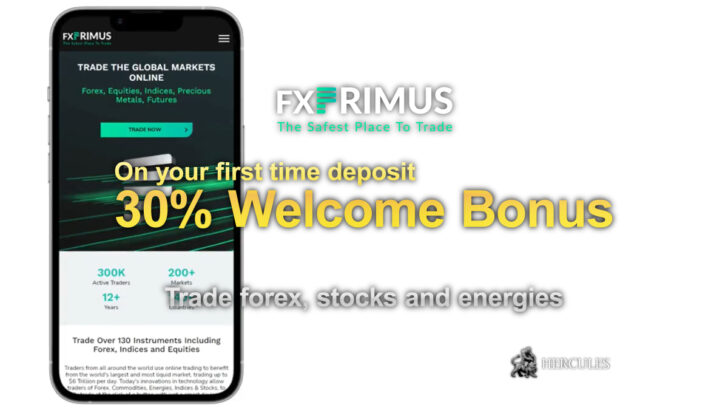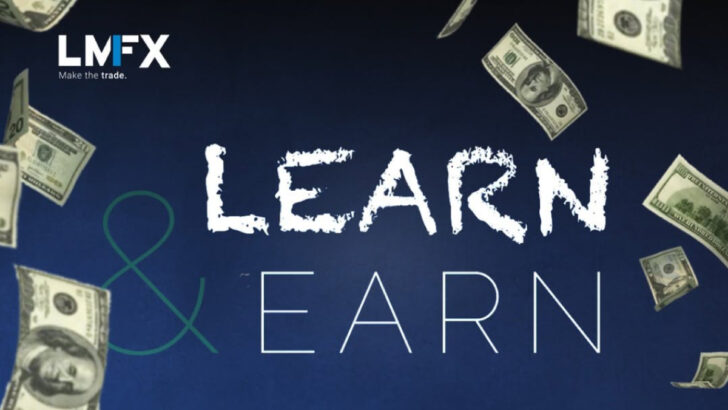Forex Trading accounts with the Highest Leverage in the world
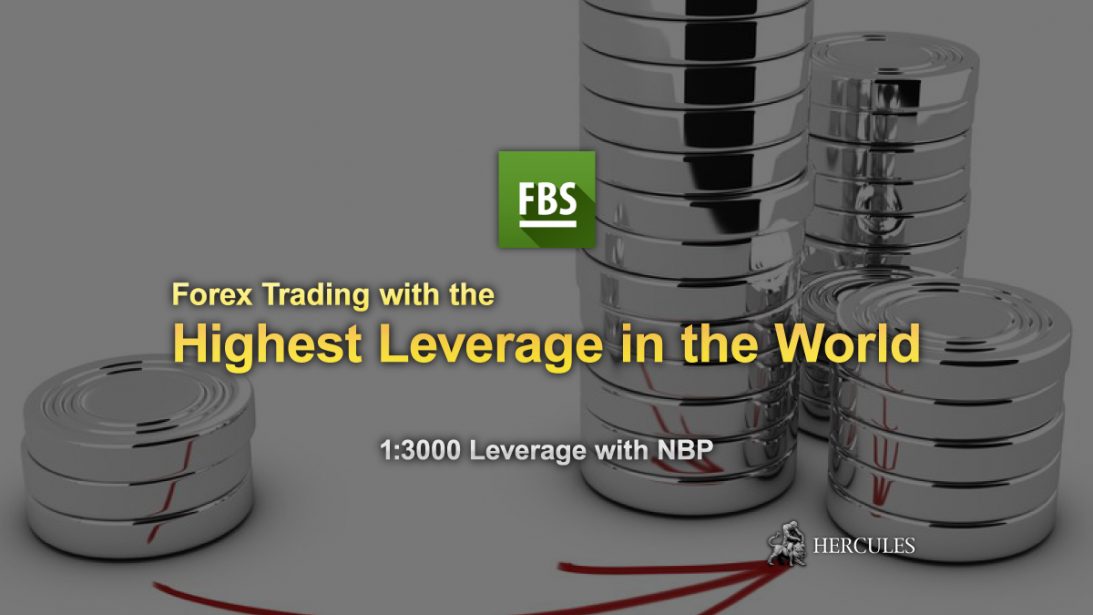
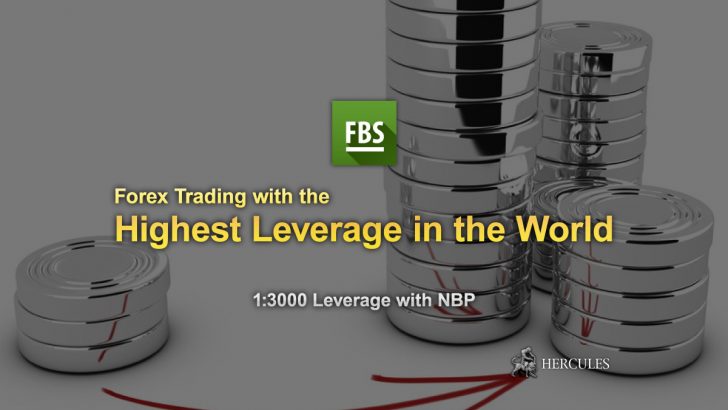
Do you know the highest Forex leverage in the world?
FBS offers leverage up to 1:3000 on MT4 and MT5 trading platforms.
This extraordinary leverage can increase your trading volume by 3000 times while limiting the maximum loss to the total account balance with NBP (Negative Balance Protection).
The highest leverage in the world 1:3000 involves high risk, but the NBP ensures that investors never lose more than they deposit.
FBS’s 1:3000 leverage is available for all traders of the broker.
Visit the official website of FBS today to find out more.
Smart levels of leverage – What you need to know to stay in the game
It goes without saying, but if you decide to throw caution to the wind when trading with leverage, then large losses can occur.
These losses can be the result of not following a trading plan, because of a lack of discipline or from psychological mistakes which can creep in.
However, there is another reason why traders suffer large losses, which is often underestimated – that is, the misuse of leverage.
Understanding how to better use leverage in trading can greatly reduce your trading losses, and in turn, positively impact your trading performance.
This article will highlight how important it is to pick the right leverage for your trades, depending on your trading style and trading profile.
Leverage can greatly enhance your chances of making profits or it could completely wipe out your trading account.
Leverage is used by investors – especially in the Forex and CFD markets, to increase their market exposure.
Leverage involves borrowing an amount of money from a broker to open a trading position.
Forex brokers usually offer the highest leverage out of all the different broker types.
How leverage works and what’s the benefit?
For example, if you want to open a position on the EUR/USD currency pair, a Forex broker may very well ask you for a margin of just 0.5% of the total transaction value of one lot.
Meaning that for a total trade value of USD 100,000, the margin you would have to provide is USD 500.
Your leverage will then be 200:1 (100,000/500).
The major benefit of leverage is it increases the potential profits a trader can make with greater market exposure.
A trader may only have USD 500 in his trading account but can trade much larger position sizes thanks to leverage.
With this small initial sum, many small investors can make out sized profits, relative to the amount of money they’ve outlaid.
Compare the Leverage of Online Forex Brokers
The disadvantage of Leverage and How to avoid the risk
On the other hand, the more leverage you use, the riskier it is, such as when the market goes in the opposite direction to your position.
In this case, leverage works against you and can increase the level of your losses.
Leverage is a double-edged sword and should be managed very carefully within your portfolio.
As you can equally increase your profits as well as your losses with leverage, it’s important you are fully aware of the current state of your finances, to be sure you are not trading with money you can’t afford to lose.
You should act prudently, so use a level of leverage to keep you in the game, long-term.
If you use a small amount of leverage, it will allow you to have more room for your trade to evolve with a wider stop-loss, and avoiding risking too much of your total capital.
With high leverage, if a trade doesn’t go in your direction, it could quickly deplete your trading account, because your losses will be bigger due to a bigger position size.
So, the greater the leverage level you use, the greater the price swings in your trading equity – whether it’s up or down.
Always remember you control your leverage levels.
There is not one broker in the world who will tell you to trade at risky or high levels of leverage. You could trade at zero leverage.
This means you may have $20,000 in your trading account and you do not take positions exceeding $20,000 in total value.
Many experienced traders trade a extremely low levels of leverage.
It depends on your risk tolerance, your trading experience and how well you manage your emotions when trading positions are going in the wrong direction.
When selecting the right leverage level for you, it’s also important to think about the following:
- Current trading conditions: volatility levels, economic calendar, liquidity.
- You will always be best to trade at low levels of leverage, regardless of whether you believe you are an experienced trader or not.
- Setting a stop-loss, especially a trailing stop, can protect your capital in case your position starts moving in the wrong direction. It keeps your positions small and can also limit the amount of capital used per position.
- Do not use more than 1%-2% of your total trading capital as risk on each position. So if you have $10,000 in your account, do not risk more than $200 in any one position.
Trade with FBS’s 1:3000 Leverage
Revenge Trading: Its Impact on Your Trading and Steps to Avoid it
Ever noticed how you can get mad about a losing trade – and instead of trying to calm down and dispassionately analysing where you went wrong, you want to immediately trade again in an attempt to ‘get even’, as if the market has personally offended you?
We’ve all been there.
All traders experience losing trades as part of their trading career.
Especially when you trade with higher leverage in Forex market, things can go against you very quickly.
However, losses shouldn’t be taken personally, and they definitely shouldn’t be used as a reason to keep trading just because you want to ‘win’.
Smart traders quickly realise that this behaviour – also called revenge trading is nothing but toxic to their trading performance.
Check out the list of Bonus Promotions
A loss doesn’t define who you are
Revenge trading is an aggressive type of trading fueled by anger, fear and the disappointment of being wrong – which is of course very frustrating but doesn’t define who you are, or your general trading performance.
Naturally, this type of emotional behaviour is a danger to your trading account, for two main reasons.
First, revenge trading makes you lose all control over your trading because you are not following your trading plan anymore – you’re simply trading as your emotions dictate, which is never a good idea.
With your trading discipline out the window, so goes your trading processes – entry and exit strategies are no longer important, and risk management will only slow you down in your determination to prove the market wrong.
Secondly, revenge trading will often cause you to experience a wider drawdown, as you will more likely than not keep making losing trades.
After all, you’re disregarding your usual trading strategies in favour of getting your money back and avoiding losses.
This is linked to an important psychological bias called loss aversion, which ironically, makes you lose even more money if you allow it to do so.
Trading based on how you feel isn’t trading: it’s gambling.
You might get lucky, but the odds are against you.
How to be a successful trader?
Successful traders know how important it is to separate emotions of fear, greed, and impulsiveness from their trading plan.
Next time you experience a loss, just stop, accept the money is gone and that losing is part of trading.
Do not take it personally. And try to put things into perspective to understand why the trade didn’t work out, and why you are so upset and angry about it.
By documenting the context of your losing trade, what went wrong, as well as why you reacted so emotionally to this situation, can help you improve your trading process and better control your emotions.
It’s essential not to fall into the trap of thinking the market is against you – the market doesn’t care about you, how you feel, how reliable your trading system is or anything else.
When you experience a loss, and you feel like the market is personally against you, simply take a break – step away from your computer, clear your head, and engage yourself in activities not related to trading.
Here are some practical steps you can take to avoid revenge trading:
- Always trade with what you see, and not with what you think.
- Trust your trading system, follow your trading plan, and make adjustments to your risk management system if needed.
- Before you trade again, make sure you’re not simply trading to exact revenge on the market, or win back what you just lost.
- Be calm, be rational, and trade only on what is in front of you at the present moment.
By understanding how harmful revenge trading can be and analysing and changing a few minor details on how you react to losses, you will go from an emotional trader – one who’s controlled by the ebbs and flows of the market – to a rational, calm, and (most importantly) consistently profitable trader.


